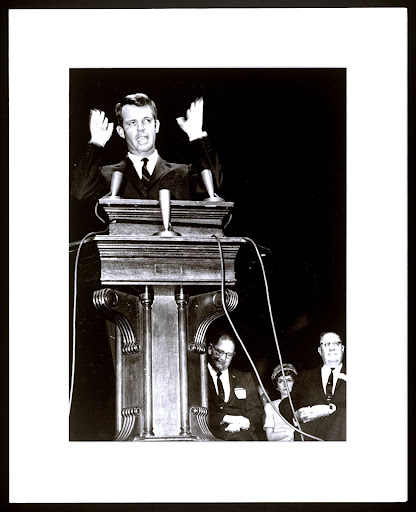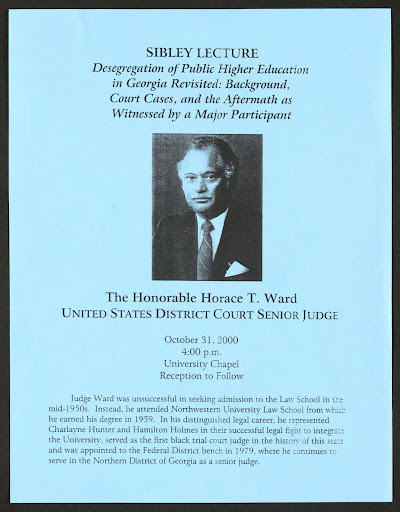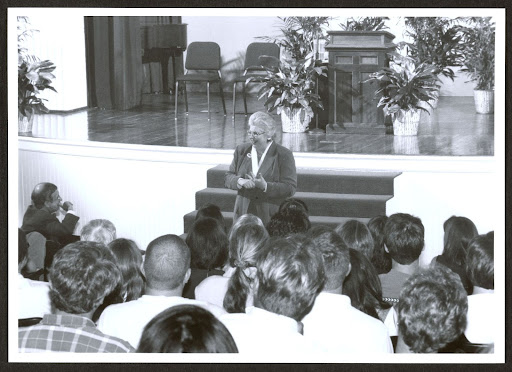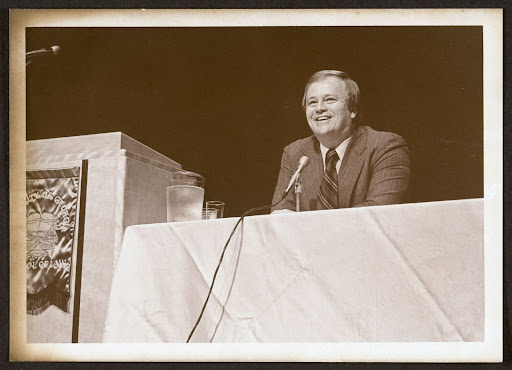Eight institutions (and nine projects) are recipients of the ninth set of service grants awarded in a program intended to broaden partner participation in the DLG and engage with diverse institutions across the state of Georgia. The DLG solicited proposals for historic digitization projects in a statewide call, and applicants submitted proposals for projects with a cost of up to $7,500.00. In addition, DLG staff will provide free digitization, metadata, and hosting services so that users can find more of Georgia’s diverse history online for free. This subgranting program was presented the 2018 Award for Excellence in Archival Program Development by a State Institution by the Georgia Historical Records Advisory Council (GHRAC).
Preference in the selection process was given to proposals from institutions that had not yet collaborated with the DLG. As a result, the Rylander Theatre and the National Museum of the Mighty Eighth Air Force are new partners for the DLG.
This year’s slate of projects provides something for everyone: art enthusiasts will be able to find information about a vibrant South Georgia community theater. Folklorists will discover materials that focus on rural Georgians and Southern folklife, including African Americans and white people. Genealogists will be able to locate church records that contain perhaps the only information recorded about enslaved people. History researchers will have access to public domain photographs of prominent, high-profile politicians and public servants and periodicals about Southern Baptist women living in the late 19th and early 20th centuries. Primary sources and publications about Georgia World War II military history and journals documenting how a small group of Methodists served the Freedman’s Aid Society during Reconstruction in Georgia will be available online.
The recipients and their projects include:
- University of Georgia Alexander Campbell King Law Library Archives & Special Collections (Athens, Ga.)
DLG will digitize and describe a collection of photographs taken by the University of Georgia School of Law’s staff, including its Communications and Public Relations Department, or by photographers hired to capture prominent event speakers encompassing fifty years of legal and political history.
- Atlanta History Center (Atlanta, Ga.)
Digitization of 149 oral history interviews conducted by Georgia State University students enrolled in Dr. John Burrison’s folklore curriculum between 1969 and 1970. These students interviewed rural Georgians and Southeasterners from rural and often isolated areas, where little documentation survives. Interview topics include crafts, storytelling, superstitions, jokes, remedies, songs and ballads, and traditions. The body of interviews provides unique insight into underrepresented Southern cultures during the twentieth century and will contribute to the teaching, study, and presentation of southern folklore.
- Columbia Theological Seminary (Decatur, Ga.)
Digitization of Lexington Presbyterian Church (Lexington, Ga.) records, 1822-1916. The Lexington Presbyterian Church records document the names of enslaved members of the church. It is not unlikely that these are the only existing records that these people ever lived for some of the names provided. There are also records of prominent educators and politicians who resided in Oglethorpe County, Georgia.
Digitization of Henry Newton papers, 1842-1900. Henry Newton was a Presbyterian preacher raised in Athens who graduated from the University of Georgia in 1841 and the Columbia Theological Seminary in 1845. He served numerous northeast Georgian churches from 1845-1897.
- Mercer University Archives and Special Collections (Macon, Ga.)
Digitization of the Mission Messenger (1895-1921), published by the Women’s Baptist Missionary Union of Georgia. The periodical is a significant source of information about white Baptist women during the Progressive era of the late nineteenth and early twentieth centuries.
- National Museum of the Mighty Eighth Air Force (Pooler, Ga.)
Digitization of materials that focus on the activity at Savannah Army Air Base (Hunter Field), Savannah, Georgia, to prepare the Eighth Air Force for combat following its activation on January 28, 1942.
- Pitts Theology Library (Decatur, Ga.)
Digitization of bound conference journals dating from 1867 to 1939, produced by the Methodist Episcopal Church (MEC), a Northern church that established missions in Georgia during the Reconstruction Era. The church worked closely with the Freedman’s Aid Society to find schools and colleges for the formerly enslaved while integrating the then-separate Black and white churches into the same conference. MEC churches were established in both rural and urban areas throughout the state.
- Friends of the Rylander Theatre (Americus, Ga.)
Digitization of materials belonging to the Rylander Theatre that document downtown Americus, Georgia, and the role of the local theater in the rural south spanning from 1921-1957, including items related to the Rylander Theatre’s “first life” before it went dark for 40 years in 1951.
- University of North Georgia. Special Collections & Archives, Dahlonega Campus (Dahlonega, Ga.)
Digitization of the North Georgia College Cyclops yearbook collection, focusing on volumes dating from 1975-1995. This subgrant will complete the digitization of the last twenty yearbooks for North Georgia College, which ended in 1995 (in 1996, the institution’s name changed to North Georgia College & State University).
More information about our partner institutions is available below:
About the Alexander Campbell King Law Library
The mission of the Archives and Special Collections at the University of Georgia Law Library is to collect, preserve, and share the history of the University of Georgia School of Law, including its students and graduates, their contributions to legal scholarship, politics and government, and the educational and other various events hosted by the school. Visit law.uga.edu/law-library to learn more.
About the Atlanta History Center
The Atlanta History Center, through its collections, facilities, programs, exhibitions, and publications, preserves and interprets historical subjects pertaining to Atlanta and its environs and presents subjects of interest to Atlanta’s diverse audiences. More information is available at the Atlanta History Center’s website at www.atlantahistorycenter.com
About the Columbia Theological Seminary
Columbia Theological Seminary exists to educate and nurture faithful, imaginative, and effective leaders for the sake of the church and the world. It is an educational institution of the Presbyterian Church (U.S.A.) and a community of theological inquiry, leadership development, and formation for ministry in the service of the church of Jesus Christ. Visit ctsnet.edu for more information.
About Mercer University Archives and Special Collections
Housed in the Jack Tarver Library on Mercer University’s Macon campus, Special Collections is located on the Library’s 3rd floor and preserves the University’s archives and records from all Baptist traditions. Special Collections staff assist with University faculty, students, and staff as well as patrons from national and international scholarly communities. Visit libraries.mercer.edu/research-tools-help/archives for more information.
About the National Museum of the Mighty Eighth Air Force
The National Museum of the Mighty Eighth Air Force, located in Pooler, Georgia, preserves for all Americans the stories of courage, character, and patriotism displayed by the men and women of the Eighth Air Force from World War II to the present. Learn more at mightyeighth.org.
About the Pitts Theology Library
Pitts Theology Library, one of Emory University’s six instructional libraries, holds a distinguished collection of theological materials and is one of the premier theological libraries in North America. Supporting the students and faculty of Candler School of Theology at Emory University and researchers from around the world, Pitts is home to superb collections in theology and cognate disciplines, housed in a new state-of-the-art facility and served by a highly trained professional staff. For more information, visit pitts.emory.edu.
About the Friends of the Rylander Theatre (Americus, Ga.)
The Rylander Theater in Americus, Georgia, provides community and area visitors a theatre and meeting hall for dramatic and musical stage performances, motion pictures, and lectures, with its unique architecture, artistic legacy, and social history to be interpreted through tours and other educational presentations. Read more at rylander.org
About the University of North Georgia. Special Collections & Archives, Dahlonega Campus
The Special Collections and Archives serve as the institutional memory of the university and its predecessors, Gainesville State College, and North Georgia College and State University. In addition, the Special Collections and Archives seeks to collect, arrange, preserve and make accessible collections related to the history of Appalachia, Northeast Georgia and the communities surrounding the university’s five campuses. You can find out more at ung.edu/libraries/sc-archives/index.php.
About the Digital Library of Georgia Based at the University of Georgia Libraries, the Digital Library of Georgia is a GALILEO initiative that collaborates with Georgia’s libraries, archives, museums, and other institutions of education and culture to provide access to key information resources on Georgia history, culture, and life. This primary mission is accomplished by developing, maintaining, and preserving digital collections and online digital library resources. DLG also serves as Georgia’s service hub for the Digital Public Library of America and as the home of the Georgia Newspaper Project, the state’s historic newspaper microfilming project. Visit the DLG at dlg.usg.edu.





